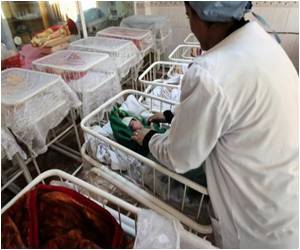The custom-designed airway splints from University of Michigan have helped three toddlers suffering from a life-threatening condition lead a normal life.

"These cases broke new ground for us because we were able to use 3D printing to design a device that successfully restored patients’ breathing through a procedure that had never been done before," explained senior author Glenn Green, associate professor of paediatric otolaryngology.
Kaiba was just a newborn when he turned blue because his little lungs were not getting the oxygen they needed. Garrett spent the first year of his life in hospital beds tethered to a ventilator, being fed through his veins because his body was too sick to absorb food. Baby Ian’s heart stopped before he was even six-months-old.
Using 3D printing, Green and his colleague Scott Hollister were able to create and implant customised tracheal splints for each patient. The device was created directly from CT scans of their tracheas, integrating an image-based computer model with laser-based 3D printing to produce the splint.
The splint was sewn around their airways to expand the trachea and bronchus and give it a skeleton to aid proper growth. The splint is designed to be reabsorbed by the body over time.
Researchers closely followed their cases to see how well the airway splints implanted in all three patients worked and the results are promising.
Now an energetic two-and-a-half-year-old with a contagious laugh, Garrett is able to breathe on his own and spend his days ventilator-free. Ian, now 17-months-old, is known for his huge grins, enthusiastic high fives and love for playing with his big brother, Owen.
Researchers noted improvements in multiple organ systems. "This treatment continues to prove to be a promising option for children facing this life-threatening condition that has no cure," the authors concluded.
The results were published in the journal Science Translational Medicine .
Source-IANS
 MEDINDIA
MEDINDIA




 Email
Email




